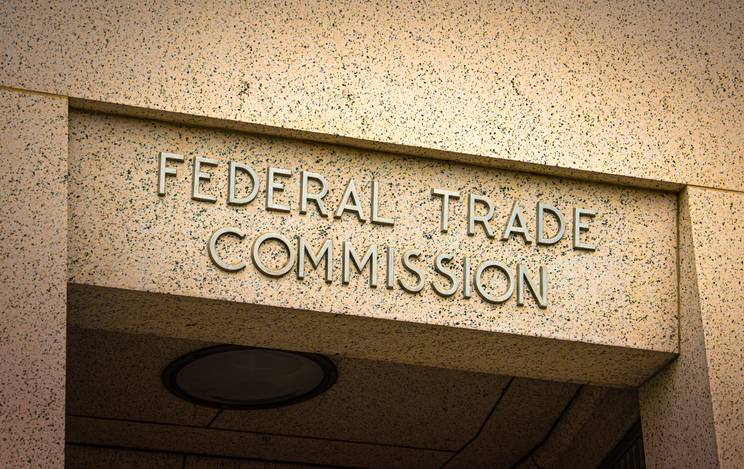On October 28, 2021, the Federal Trade Commission (FTC) sued Xlear, a Utah-based company, for claiming its over-the-counter xylitol-based nasal sprays can help prevent and treat COVID-19. The FTC has sought to stop the company from making such claims and it has imposed monetary penalties on the company. Xlear CEO Nathan Jones and attorney Rob Housman spoke with Harry Painter of Health Care News about the lawsuit.
Health Care News: The public health emergency ended this year in May, yet this lawsuit is still in the discovery phase. Why?
Jones: The FTC has no desire to move it forward as they know there is no case. If it is ever made known that the FTC, through their warning letters and lawsuits, suppressed the best option we had in early 2020 for stopping the pandemic, they will have some serious egg on their face.
Health Care News: Briefly, what are the FTC claims against Xlear?
Housman: The FTC claims that Xlear made false and misleading statements concerning the use of Xlear as an additional countermeasure to fight COVID-19. The FTC’s allegations, however, are themselves misleading in that the FTC has produced no studies to rebut the studies Xlear has provided the government.
Xlear denies that we made false and misleading statements. We have provided the government with numerous studies showing Xlear and the ingredients that make up our products are an effective countermeasure to help prevent COVID-19 transmission and reduce the duration and severity of the illness for those already infected.
(photo courtesy of Xlear)
Health Care News: Specifically, how do Xlear nasal sprays mitigate the negative effects of the COVID-19 virus or other viruses and pathogens?
Housman: Nasal hygiene interventions—sprays, washes, rinses—work by physically washing viruses and bacteria away, much like hand washing but more directly. Nasal washes also alleviate symptoms. In vitro studies indicate that Xlear blocks viral adhesion—the process by which the spikes of the COVID virus attach to the nasal tissue and inject the viral genetic material and infect a person. The xylitol in Xlear is the component that does the blocking and the grapefruit seed extract (GSE) in Xlear destroys the virus’ capsid (outer membrane).
One randomized controlled trial (the gold standard clinical trial) done in India—using a saline and xylitol spray like Xlear—reduced the rate of transmission by 62 percent over the placebo. That is a huge reduction in the risk of infection and transmission, more than the current vaccines.
Jones: The placebo in this study was saline, which reduces transmission by about 13 percent. So, using a nasal spray that has ingredients that block viral adhesion, and destroys viruses, works significantly better. This study was done with hospital workers in India during the Delta wave of COVID, arguably the deadliest wave at the deadliest place.
Health Care News: Do you think in any way the marketing was getting ahead of the science?
Housman: No. Rather, it seems the science is out in front of what public health officials and the U.S. government are telling the American people. There is a great deal of reliable, sound science behind nasal hygiene. The government doesn’t want you to hear about it could undercut the vaccine strategy, which has failed. By the way, I’m vaccinated and boosted.
Jones: There is a long history of government/establishment health care organizations fighting hygiene solutions for health care problems. Dr. Semmelweis, who first proposed handwashing by physicians in 1848, was laughed, and mocked by the establishment. Dr. John Snow in London was mocked for suggesting that they put in a sewer system to end their cholera epidemics; the American Medical Association sent lawyers to Congress to try to put an end to Dr. Sara Jo Baker’s handwashing and hygiene programs here in the U.S. These doctors all saw great results from things they did, and people in the bureaucracy that were not seeing patients were the ones fighting against them—very similar to what we are seeing today.
Health Care News: Why have there not been more clinical trials studying nasal sprays?
Housman: There is a large amount of clinical data behind nasal sprays—the public is just not seeing it, in large part because the government is censoring it. The FTC’s suit against Xlear is part of that censorship. Many studies are published on the National Health Institute’s website. We have produced these studies in our lawsuit.
Health Care News: How has the government tried to block Xlear products or other products, and why do you think they have done that?
Housman: The government’s primary effort has been for the FTC to sue Xlear to prevent us from telling people about scientific studies. This lawsuit has had a significant chilling effect. You don’t see the media covering the science. We know from discovery that the FTC involved itself in Xlear’s efforts to seek Emergency Use Approval from the FDA. The FTC has no role in FDA matters. So why were FTC lawyers talking to the FDA? We also know the government has taken steps to intimidate the doctors who conducted some of these trials.
Health Care News: How would the pandemic look had the government not tried to clamp down on alternative treatments?
Housman: If one looks at the India study finding a 62 percent reduction in transmission over placebo, and reasonably extrapolates, it seems logical that if the government had promoted the use of nasal hygiene as a countermeasure, the size and impact of the pandemic would have been greatly reduced.
Internet info:
“USA v. XLEAR et al.,” July 14, 2022: https://www.govinfo.gov/content/pkg/USCOURTS-utd-2_21-cv-00640/pdf/USCOURTS-utd-2_21-cv-00640-1.pdf
Defendants’ Amended Answer to the Government’s Complaint, July 16, 2022: https://xlear.com/wp-content/uploads/2022/08/Dkt.-45-Amended-Answer-with-Exhibits176006339.1.pdf
